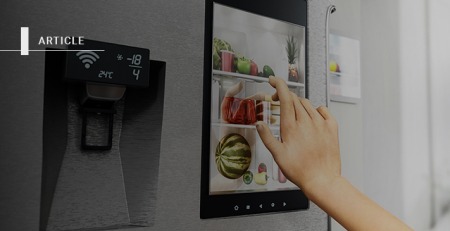Why the Great Resignation Means Hybrid Work is Here to Stay
Never in history have so many people been ready to quit their jobs. Frustrated and burned out, one Monster.com poll found a jaw dropping 95% of employees are actively considering putting in their notices. Millions more already have.
It’s leaving companies everywhere nervous and shorthanded. Without enough staff to help run their day-to-day operations, some have even been forced to reduce their hours. Others are ready to do anything to attract and retain new talent – even if it means giving up on an everyone-in-the-office mentality.
What Is the Great Resignation?
What do you call 47 million people quitting their jobs in a single year? A Great Resignation. That’s how many folks the U.S. Bureau of Labor Statistics say voluntarily handed in their notices in 2021.
The movement reached mass exodus-status during the second year of the Pandemic. Today, almost every industry imaginable is hanging help-wanted signs. Sectors like hospitality, healthcare, food service, and social assistance have been hit particularly hard as workers flee high-stress and low-paying jobs.
It’s not only changed the way workers relate to the job market, it’s also changed how companies relate to work itself.
Reframing the Great Resignation
It’s easy to look at the swelling number of job vacancies and pass judgment. However, it’s important to remember that people are dealing with real hardships and making difficult decisions. For so many, the choice has come down to taking care of their health and their families or staying in their current roles.
Harvard Business Review points to this by citing: “A 2021 Women in the Workplace report, which found that one in three women are considering leaving the workforce, switching jobs, or cutting work hours. This is often a forced choice — many women have no option other than leaving to meet caregiving obligations.”
Some other reasons employees are stepping away include:
1. Burnout. People are seeking meaningful work to battle the emotional-physical exhaustion and cynicism that can come from being overworked and underappreciated.
2. Autonomy. Having been highly productive working from home for two years, employers are having to justify to employees why a return to the office is even necessary.
3. Disrespect. Stressed out clients, customers, and colleagues have pushed employees to their breaking point, leading them to seek out healthier work environments.
4. Reprioritization. There’s nothing like a global pandemic to force you to reexamine your priorities. Many are choosing their families over their salaries.
5. Commutes. An employee with an average 30 to 40-minute commute saves hundreds of hours a year not being on the road. Time that can be spent with loved ones or on their own self care.
6. Misalignment. People want to know that they are a values-match with the company they work for – or find another that is.
Understanding the Importance of Hybrid Work for Employees
As employees evolve their standards, businesses are having to get creative in how they meet those demands.
Some have implemented perks like signing bonuses, tuition reimbursement, and better benefits. But if you ask most employees what they most want, it’s the flexibility to work in a hybrid environment.
According to a recent Gallup poll, nine in 10 remote-capable employees prefer some degree of remote-work flexibility going forward, and six in 10 specifically prefer hybrid work.
“The hybrid workspace is about enabling as much productivity as possible without costing our employees too much personal time, sacrifice, or ability to control their workday. Some attendance at the office is likely a component of cultural bonding and team productivity, but not necessarily a main element of work,” explains Forbes.
Like it or not, The Great Resignation is here and likely to stay. Companies who continue to resist our new normal are liable to keep coming up short staffed. Those who work to build flexible work environments while fostering a sense of trust and connection with their teams will have the best chance at maintaining a consistent, competitive workforce.
Content created and provided by ONEAFFINITI.












